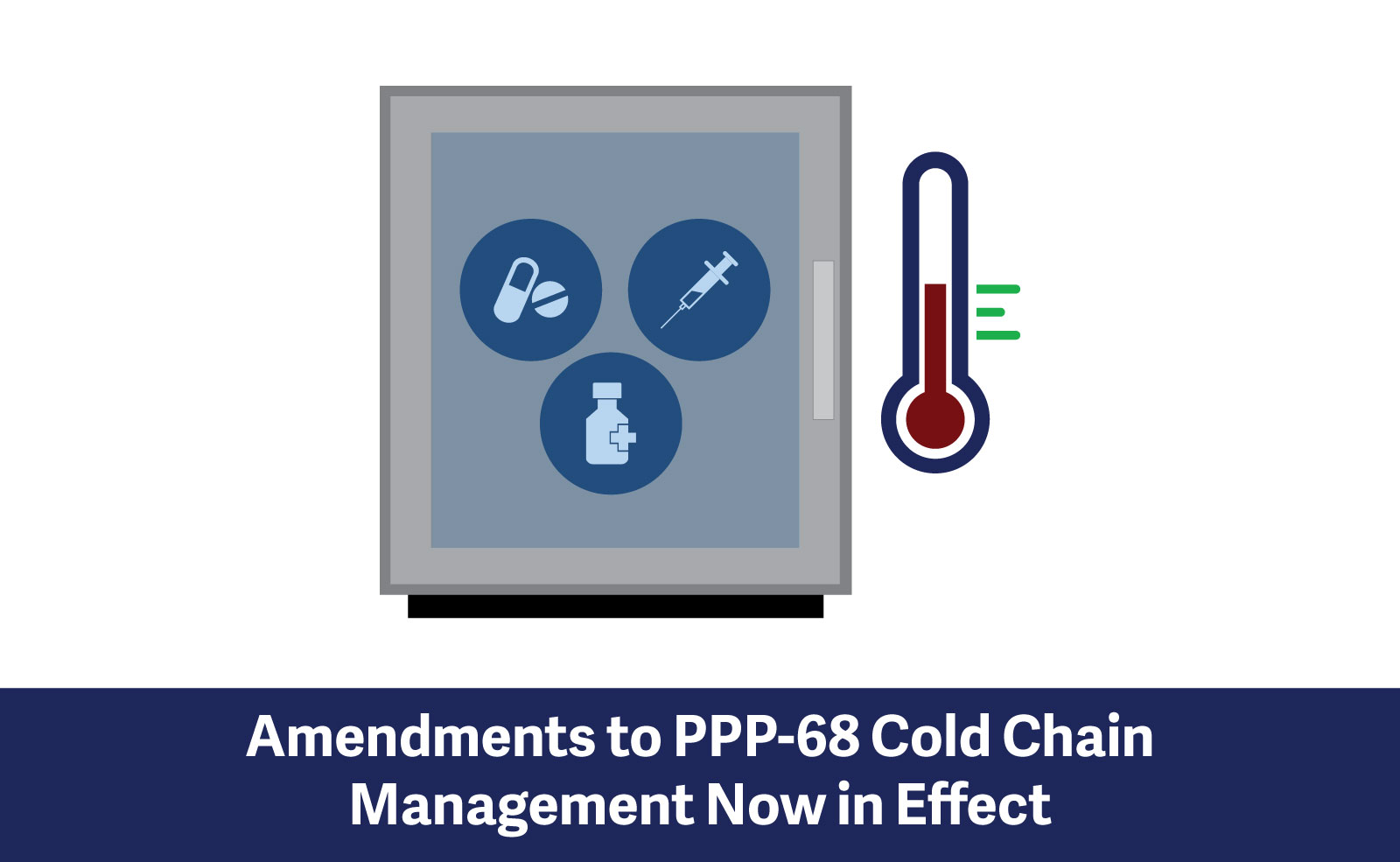Amendments to PPP-68 Cold Chain Management Now in Effect
Amendments to Professional Practice Policy 68 – Cold Chain Management of Biologicals (PPP-68), including broadening its scope and renaming it PPP-68 – Cold Chain Management, were approved by the College Board at its February 2020 meeting, and are now in effect.
PPP-68 was originally approved in 2011 and adopted the BC Centre for Disease Control (BCCDC) guidelines on the Management of Biologicals (BCCDC Vaccine Guideline) to address the concerns with larger volumes of vaccines being stored at pharmacies as a result of pharmacists’ injection authority, but lack of storage standards for vaccines and other biologicals that require refrigeration.
Recognizing that there are drugs other than biologicals and vaccines that require refrigeration, it was recommended that PPP-68 be broadened to include any drug requiring cold chain management, and revised to better align with current pharmacy practices.
Key Requirements for Cold Chain Management
All drugs requiring refrigeration must be stored and maintained in accordance with all applicable requirements, including but not limited to:
- Manufacturer’s requirements,
- BCCDC Vaccine Guideline, and
- NAPRA Compounding Standards.
Refrigerators, Freezers and other storage equipment
The BCCDC Vaccine Guideline provides guidance for refrigerators and freezers specific for vaccine storage. However, some of the recommendations are not applicable to pharmacies or drugs other than vaccines.
To address this, a set of principle-based requirements have been included in the amended policy for refrigerators, freezers, and other storage equipment (collectively defined in the policy as “cold storage equipment”):
- The equipment must be purposed for drug storage only (e.g. storage of food in the same equipment is not permitted);
- The equipment must maintain only one temperature range enclosed by a door with an air-tight seal (e.g. a bar fridge that contains both refrigerator and freezer compartments with only one exterior door is not acceptable as it does not maintain even temperatures).
- The equipment must maintain a temperature range suitable for the drugs stored in the equipment.
- Cold storage equipment must be equipped with a digital thermometer or digital temperature monitoring system.
Temperature Recording and Monitoring
In recognition of modern technology, the amended policy permits temperatures to be recorded either manually or automatically.
If the temperature is recorded and monitored manually, it must be done at least twice each working day, documenting the current temperature, and minimum and maximum temperatures reached since the last recording.
If the temperature is recorded automatically, the system must record temperature at a frequency that can determine the same or more temperature information provided by manual recording (current temperature and minimum, maximum temperature reached twice a day), and an alarm must be in place to alert staff of temperature excursions.
Record Retention
Pharmacies must now ensure that temperature records, equipment maintenance records, and documentation of actions taken in the event of temperature excursions, be retained and made easily retrievable for a period of at least 3 years.
This 3-year retention period aligns with the record retention period set out in the PODSA Bylaws, as well as the existing requirements in the BCCDC Vaccine Guideline.
Pharmacy Specific Policies and Procedures and Staff Training
The BCCDC Vaccine Guideline provides specific policies and procedures that may not be applicable to pharmacy practices.
To provide more flexibility, the amended policy includes requirements for pharmacy managers to establish policies and procedures specific to their pharmacy’s practices. In addition, the pharmacy manager must ensure staff are trained on these policies and procedures in accordance with PODSA Bylaws.

 Share
Share



